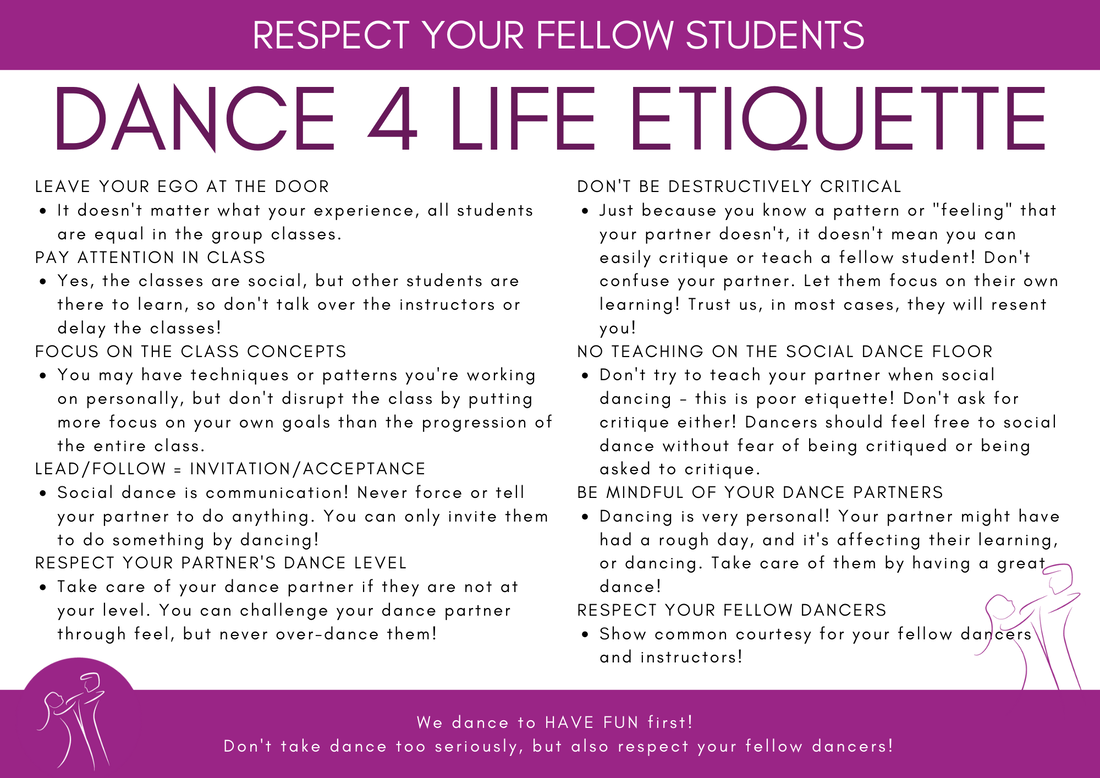Our Philosophy
Social dance is a physical conversation between two people. Whether social dancing, or in a class setting, your job is to communicate using your body, not words. A good leader puts their follower at ease, making the dance feel smooth and easy without brute force. A good follower follows the most subtle of movements and directions, making the leader feel like he can lead anything. This communication through body and dance is something that dancers always strive to improve, no matter what level is attained. A good social dance is two dancers exploring music together, communicating through body movement, back and forth, with both making up for their partner's shortcomings without verbal blame.
Common Complaints
Common Complaints from Followers
Common Complaints from Leaders
Common Complaints
- My dance partner kept telling me what to do.
- My dance partner kept comparing me to others.
- My dance partner kept trying to teach me something I wasn't ready for.
Common Complaints from Followers
- The leader was very rough, and now I'm sore.
- The leader kept verbally telling me how to follow.
- The leader told me I was too stiff.
- The leader got too close to me, and made me feel uncomfortable.
- The leader was leading things that were too hard, or were unclear.
Common Complaints from Leaders
- The follower kept telling me how to lead the step.
- The follower was too impatient and kept back-leading steps.
- The follower kept comparing me to other leads.
- The follower was forcing me to lead in a specific way, instead of just following.
- The follower kept saying, "I can do this if I'm lead right, it must be you."
- The follower was over-stylising and this was very off-putting.
- The follower was too impatient and kept back-leading steps.
